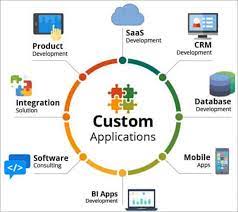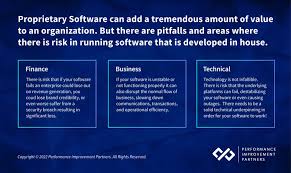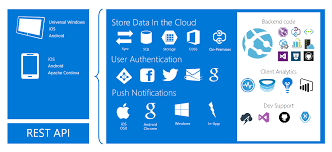Empowering Businesses with Professional Software Application Development Services
The Importance of Software Application Development Services
In today’s digital age, software applications play a crucial role in the success of businesses across various industries. Whether it’s a mobile app, web application, or custom software solution, having a well-designed and functional software application is essential for staying competitive in the market.
What are Software Application Development Services?
Software application development services encompass the process of creating, designing, testing, and maintaining software applications tailored to meet specific business needs. These services are provided by skilled professionals who have expertise in programming languages, development tools, and best practices to deliver high-quality solutions.
The Benefits of Software Application Development Services
Customization: With software application development services, businesses can get tailor-made solutions that address their unique requirements and challenges.
Scalability: Professional developers ensure that the software applications are scalable to accommodate growth and evolving business needs.
Efficiency: Well-designed applications streamline processes, improve productivity, and enhance overall operational efficiency.
Competitive Edge: Having a robust and user-friendly application can give businesses a competitive edge by providing better customer experiences and innovative features.
The Process of Software Application Development
The development process typically involves several stages:
- Requirement Analysis: Understanding the client’s needs and defining project objectives.
- Design: Creating a blueprint of the application’s structure and user interface.
- Development: Writing code to build the functionality of the application.
- Testing: Thoroughly testing the application for bugs and performance issues.
- Deployment: Launching the application for end-users to access.
- Maintenance: Providing ongoing support and updates to ensure optimal performance.
Hiring Professional Software Developers
When seeking software application development services, it is essential to partner with experienced professionals who have a proven track record of delivering successful projects. Skilled developers can turn your ideas into reality and help you achieve your business goals through innovative software solutions.
Conclusion
In conclusion, software application development services are vital for businesses looking to leverage technology for growth and success. By investing in custom software solutions developed by experts, organizations can enhance their operations, improve customer satisfaction, and stay ahead in today’s competitive market landscape.
8 Essential Tips for Successful Software Application Development Services
- Understand the client’s requirements clearly before starting development.
- Follow best coding practices and standards to ensure maintainability of the codebase.
- Regularly test the software for bugs and issues to deliver a high-quality product.
- Document the code and processes for easier maintenance and future updates.
- Communicate effectively with the client to provide updates and gather feedback throughout the development process.
- Stay updated with the latest technologies and trends in software development to offer innovative solutions.
- Collaborate with team members effectively by using version control systems and project management tools.
- Prioritize security measures to protect user data and prevent vulnerabilities in the application.
Understand the client’s requirements clearly before starting development.
Understanding the client’s requirements clearly before starting development is a crucial tip in software application development services. By taking the time to comprehensively grasp the client’s needs, preferences, and objectives, developers can ensure that the final product aligns perfectly with the client’s expectations. Clear communication and thorough requirement analysis at the outset of a project lay a solid foundation for successful development, leading to a more efficient process, fewer revisions, and ultimately, a satisfied client with a tailored software solution that meets their specific needs.
Follow best coding practices and standards to ensure maintainability of the codebase.
Following best coding practices and standards is crucial in software application development services to ensure the maintainability of the codebase. By adhering to established guidelines and principles, developers can write clean, efficient, and well-structured code that is easier to understand, modify, and debug in the future. Consistent coding practices also promote collaboration among team members, improve code readability, and reduce the risk of introducing errors or bugs during development. Ultimately, prioritizing best coding practices leads to a more maintainable codebase that can evolve smoothly over time as business requirements change.
Regularly test the software for bugs and issues to deliver a high-quality product.
Regularly testing the software for bugs and issues is a critical tip in software application development services. By conducting thorough testing throughout the development process, developers can identify and address any potential issues early on, ensuring that the final product is of high quality. Testing helps to improve the overall functionality, performance, and user experience of the software, ultimately leading to greater customer satisfaction and success in the market. Prioritizing testing as a part of the development lifecycle is key to delivering a reliable and efficient software application that meets the needs and expectations of users.
Document the code and processes for easier maintenance and future updates.
Documenting the code and processes is a crucial tip in software application development services as it ensures easier maintenance and future updates. By providing clear and detailed documentation, developers can easily understand the logic behind the code, making it simpler to troubleshoot issues, implement changes, and add new features. Well-documented code also facilitates collaboration among team members, promotes consistency in coding practices, and ultimately leads to a more efficient and sustainable software development process.
Communicate effectively with the client to provide updates and gather feedback throughout the development process.
Effective communication with the client is crucial in software application development services. Providing regular updates and seeking feedback throughout the development process ensures that the final product aligns with the client’s expectations and requirements. Clear and open communication helps to address any issues promptly, make necessary adjustments, and maintain a collaborative relationship that leads to a successful outcome. By keeping the client informed and involved at every stage, developers can deliver a tailored solution that meets the client’s needs effectively.
Stay updated with the latest technologies and trends in software development to offer innovative solutions.
To excel in software application development services, it is crucial to stay updated with the latest technologies and trends in the industry. By keeping abreast of advancements in software development, professionals can offer innovative solutions that meet the evolving needs of clients and users. Embracing new technologies not only enhances the quality and efficiency of software applications but also ensures that developers remain competitive and capable of delivering cutting-edge solutions to drive business growth and success.
Collaborate with team members effectively by using version control systems and project management tools.
Effective collaboration among team members is crucial in software application development services. By utilizing version control systems and project management tools, teams can streamline their workflow, ensure code consistency, track progress efficiently, and facilitate seamless communication. Version control systems like Git enable developers to work on code simultaneously, manage changes effectively, and revert to previous versions if needed. Project management tools such as Jira or Trello help in organizing tasks, setting deadlines, assigning responsibilities, and monitoring project milestones. By embracing these tools, teams can enhance productivity, reduce errors, and deliver high-quality software applications in a collaborative environment.
Prioritize security measures to protect user data and prevent vulnerabilities in the application.
When it comes to software application development services, prioritizing security measures is paramount to safeguard user data and prevent vulnerabilities in the application. By implementing robust security protocols and staying vigilant against potential threats, developers can ensure that sensitive information remains protected and the application remains resilient against cyber attacks. Prioritizing security not only instills trust among users but also demonstrates a commitment to upholding data privacy standards and maintaining the integrity of the software solution.












